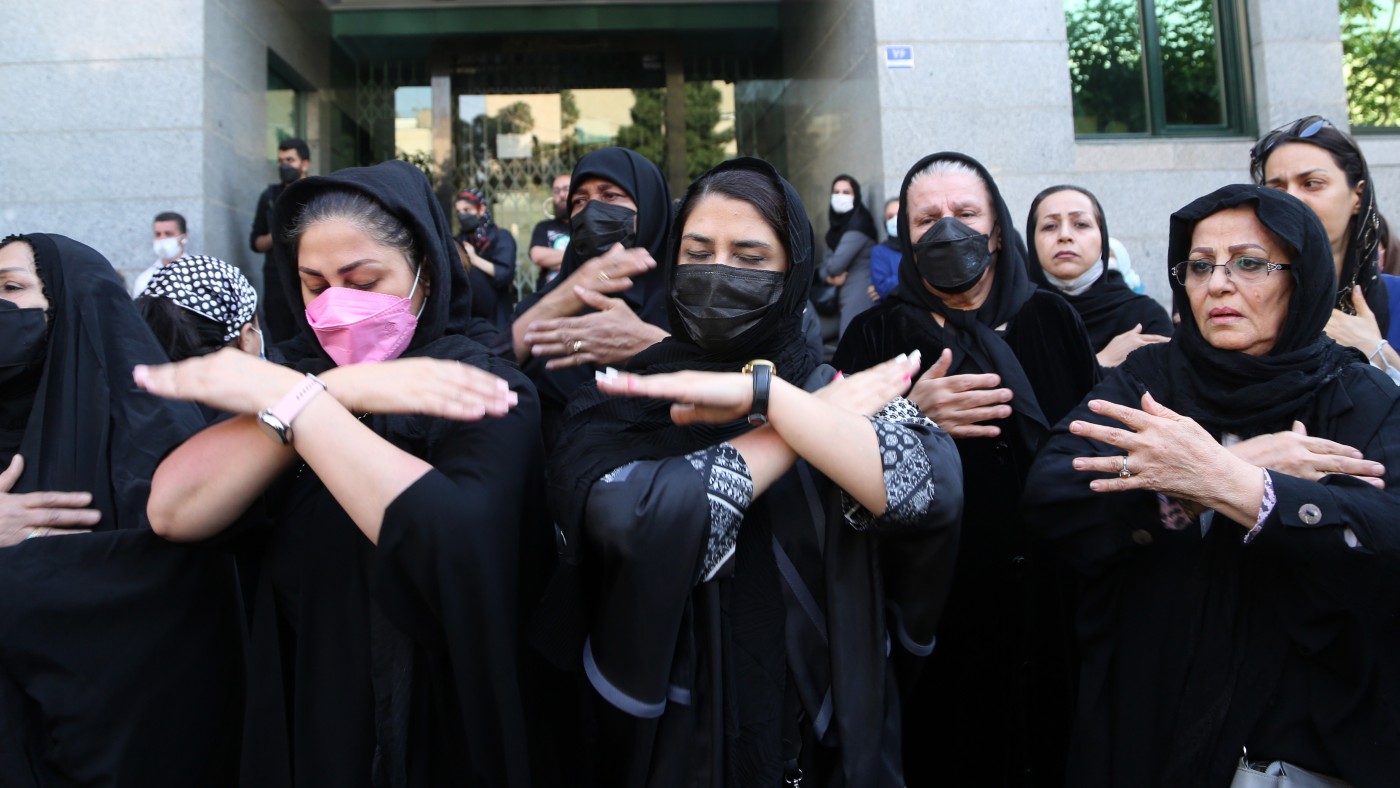‘Death to Khamenei’: the protests convulsing Iran
Protests have spread like wildfire, fuelled by falling living standards and soaring food prices

A free daily email with the biggest news stories of the day – and the best features from TheWeek.com
You are now subscribed
Your newsletter sign-up was successful
A “massive tide of popular rage” is engulfing Iran, said Mohammed Al-Sulami in Arab News (Riyadh). Protests have spread like wildfire across the country in recent weeks, fuelled by falling living standards and soaring food prices. Inflation is at 40%, its highest level since 1994. People lost patience with the hard-line president, Ebrahim Raisi – who ahead of his election last year had promised to “combat price hikes” and alleviate the suffering of ordinary Iranians – some time ago. But now they’re turning on Supreme Leader Ali Khamenei too, said Iran International (London). He became the focus of anger after a tragic incident last month when a ten-storey building in the city of Abadan collapsed and 41 people were killed. This triggered days of unrest across Iran: the tragedy has “become a symbol of government corruption” with everyone blaming lax safety rules and official negligence. In the ensuing clashes with security forces, the protesters were shouting “Death to Khamenei; death to the dictator.”
It’s far from the first time Iranians have displayed their anger at the regime by joining mass protests, said Amir Taheri in Asharq Al-Awsat (London). In 2019, for instance, soaring fuel prices triggered large-scale unrest, which left at least 324 people dead. Yet while previous uprisings never led to major changes, there are signs this time that “something has snapped” in a country where about 40 million people still live in poverty. The unrest isn’t focused on a “single issue”, it’s down to deeper and more widespread dissatisfactions. Calls for regime change are now explicit; you can hear even usually equivocal groups such as Islamic intellectuals “mumbling expressions of support for the protesters”. Indeed, these protests have united great swathes of the country, from “disenfranchised minorities” to long-standing opposition groups, said Abraham Cooper and Johnnie Moore on Al Arabiya (Riyadh). In short, this is “the regime’s worst nightmare”.
Maybe so, said Mohammed Al-Sulami – but don’t expect it to lead to real change. The regime has crushed far larger protests in the past, and has shown little appetite for reform in the wake of those. For now, there’s scant sign of people’s suffering being alleviated, said Umar A. Farooq and Reza Khaasteh on Middle East Eye (London). Talks with the US to revive the Iran nuclear deal have stalled, meaning the Western sanctions which are wreaking havoc with Iran’s economy look likely to endure. And, as ever, it’s “ordinary Iranians” who will bear the brunt.
The Week
Escape your echo chamber. Get the facts behind the news, plus analysis from multiple perspectives.

Sign up for The Week's Free Newsletters
From our morning news briefing to a weekly Good News Newsletter, get the best of The Week delivered directly to your inbox.
From our morning news briefing to a weekly Good News Newsletter, get the best of The Week delivered directly to your inbox.
A free daily email with the biggest news stories of the day – and the best features from TheWeek.com